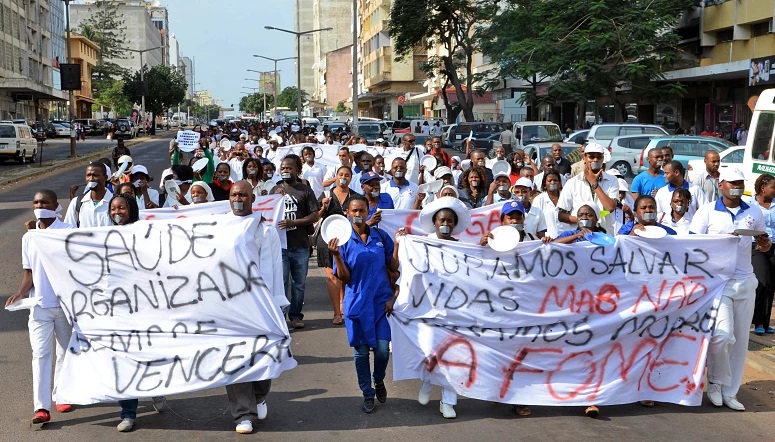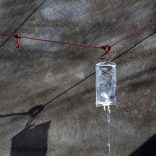Mozambique: DOGE cuts €9.5M male circumcision programme
Mozambique: NGO calls for minimal service legislation

FILE - For illustration purposes only. [File photo:Lusa]
The Centre for Public Integrity (CIP) of Mozambique said on Monday that strikes in various sectors, such as the 21-day strike by doctors in the health service, serve “as a signal” to parliament to legislate on minimum services.
In a note released today (17 July) by CIP, the lawyer of that Mozambican non-governmental organisation, Baltazar Fael, referred to the need for the country to legislate on minimum services “in order to meet the unavoidable needs of society”.
“The regulation of minimum services should not only be made for situations of doctors’ strike, but it should also cover other essential services that must be guaranteed continuously so as not to cause damage to society,” he pointed out.
“Recently, the employees of the Maputo City Council were also on strike, including those linked to the health sector. This situation could have been catastrophic if we consider that it is a service that guarantees the hygiene and health of the city. Failure to do so could have serious consequences for public health,” he said.
The national strike called by the Medical Association of Mozambique (AMM) in protest against salary cuts and lack of payment of overtime, since 10 July and for a period of at least 21 days, is the latest of these cases.
According to the CIP, specifically in the case of doctors, who “exercise their constitutionally enshrined right to strike, the government has resorted to palliative measures, such as hiring trainees or using military doctors, because the obligation of health service doctors to guarantee minimum services a priori is not regulated”.
“It must be borne in mind that minimum services cannot jeopardise the right to strike, so that, when they are decreed, they must be only those indispensable to guarantee social tranquillity (…) The legal-constitutional provision of the right to strike in Mozambique should be an indication of the need to legislate on minimum services aimed at guaranteeing the continuity of the provision of essential services”, the CIP lawyer said.
In the case of the health service, this is the second doctors’ strike in less than a year, after the suspension of another one called in December, with the absence of results in the understandings reached with the government in the negotiations held at the end of last year.
In addition to the doctors, the Association of United and Solidarity Health Professionals of Mozambique was also on strike last month, challenging the application of the new salary table, having given the government a deadline of 60 days to resolve at least part of the professionals’ demands.
The implementation of the new salary table in the civil service is being strongly contested by several professional classes, especially doctors, judges and teachers.












Leave a Reply
Be the First to Comment!
You must be logged in to post a comment.
You must be logged in to post a comment.